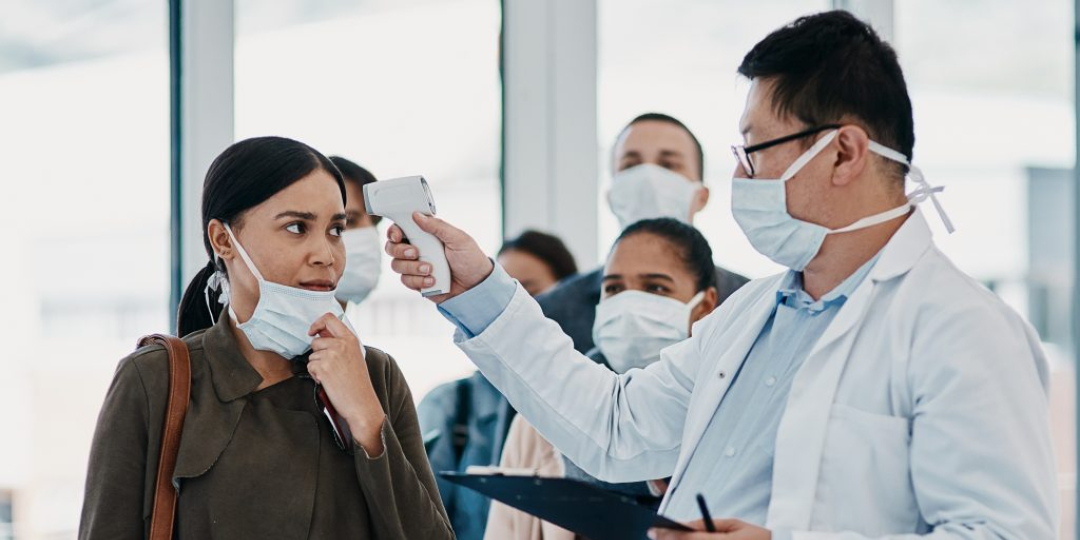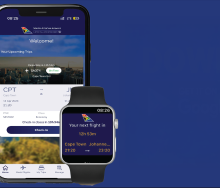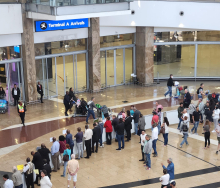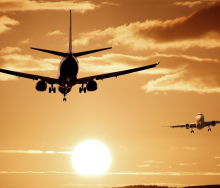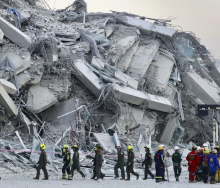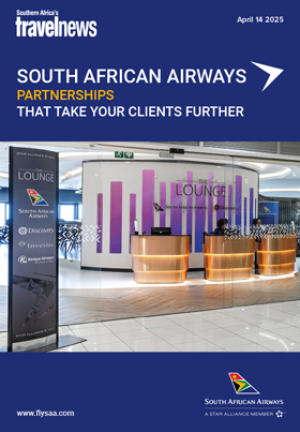Following the World Health Organization’s declaration that an ongoing mpox outbreak across several African countries was a global health emergency of international concern, some countries have put additional screening measures in place at airports and seaports. There are now concerns that this could impact international travel.
On August 14, WHO Director-General Tedros Adhanom Ghebreyesus determined that the upsurge of mpox in the Democratic Republic of the Congo and a growing number of countries in Africa constituted a public health emergency of international concern (PHEIC).
Countries including China, Sweden, Pakistan and India have tightened traveller screening at all ports of entry, and are preparing measures, including facilities for isolation and laboratories for quick testing and early diagnosis, to minimise the impact of the disease.
The WHO announced on August 16 that there was no need to close borders, as it would not prevent the disease from spreading. On August 19, the Health Security Committee of the European Commission and European Centre for Disease Prevention and Control agreed that there was no need to impose border controls, nor to update the regulation on mpox vaccination to require bloc-wide inoculation. Although the organisations anticipate more mpox cases across Europe, they recommend high levels of planning and awareness to ensure cases are contained and the impact remains low.
At a virtual workshop given by International SOS on August 20, it was explained that a new variant of monkeypox, clade 1, is highly contagious and rapidly spreading across east Africa.
“The current upsurge of mpox in parts of Africa, along with the spread of a new sexually transmissible strain of the mpox virus, is an emergency, not only for Africa, but for the entire globe. Mpox, originating in Africa, was neglected there, and later caused a global outbreak in 2022. It is time to act decisively to prevent history from repeating itself,” said International Health Regulations Emergency Committee Chair, Dimie Ogoina.
An mpox outbreak was previously declared a PHEIC in 2022. International SOS warns that this new variant is not only sexually transmissible, but more easily spread through skin-to-skin contact and via oral airborne particles.
According to Foster Mohale, the South African Department of Health’s spokesperson, although travel and trade restrictions have not been recommended by the Africa CDC, the Department of Health urges all travellers arriving in and returning from the affected countries to co-operate with Port Health officials and additional health screening procedures.
“The Department of Health is working closely with the Border Management Agency to intensify health screening at the ports of entry,” said Mohale.
“There is no immediate plan to implement measures such as quarantines, because the situation is currently under control in the country. Our decisions and response interventions will be informed by the scientific data in line with the country’s pandemic preparedness plans. For now, our priority is to intensify health screening, risk communication and community engagement, and surveillance activities. We also ensure rapid response through contact-tracing and case-finding once a positive case has been confirmed,” he explained.
The WHO and international CDCs are urging people travelling to impacted countries to remain safe by adhering to the following recommendations:
- Practise good personal hygiene by regularly washing your hands, using alcohol rubs and sanitiser.
- Avoid close contact with an infected person or suspected case. Maintain speaking and breathing distance.
- Avoid large social gathering or events where there are many people in close proximity and skin-to-skin contact is likely. Festivals, events, and concerts where attendees are fully clothed and unlikely to share skin-to-skin contact are safer.
- Wear a mask when coming into contact with an infected person or, if infected, avoid transmitting the virus to others.
- Clean and disinfect contaminated surfaces and objects, and properly dispose of contaminated waste.
- Limit sexual partners and use condoms to reduce risk of exposure.
- Avoid close contact with animals with confirmed or suspected mpox, including pets, livestock and wildlife.
President Cyril Ramaphosa, speaking in his role as the AU Champion on Pandemic Prevention, Preparedness, and Response, called on the WHO to collaborate with Africa CDC to ensure vaccines and therapeutics are made available to African countries during the outbreak.
Abraham Udoudom, Medical Director of Medical Services in Nigeria International SOS, warned that African countries would likely have limited access to the vaccinations and would have to prioritise those who needed it most urgently, including people in highly impacted countries and those with compromised immune systems.
“(This PHEIC) must be different, and correct the unfair treatment from the previous one (mpox PHEIC) declared in 2022, where vaccines and therapeutics were developed and made available primarily to Western countries, with little support extended to Africa,” urged Ramaphosa.
There are currently cases in 26 countries across the world, with about 2 863 cases and 517 deaths in Africa alone, reports Africa Centre for Disease Control and Prevention (Africa CDC). The most impacted African countries currently include DRC, Burundi, Rwanda, Uganda and Kenya.
In South Africa, the total number of cases stands at 24, of which 12 were reported in Gauteng, 11 in KwaZulu-Natal and one in the Western Cape and three deaths, SA Government News Agency reported on August 15.
“Business travellers from South Africa frequently travel into Africa for work and are generally well accustomed to managing various health risks, including those associated with malaria and yellow fever. In the context of Mpox, we don't view this as a heightened risk for our travellers, as transmission typically doesn't occur in regular business travel settings such as aircraft or hotel lobbies,” Bonnie Smith, GM Corporate Traveller.
“At Corporate Traveller, we have well-defined protocols in place to ensure the safety of our clients. This includes providing regular updates on destination-specific risks and offering tailored advice. Our online booking tool is also designed to give travellers all necessary notifications and guidance if they are heading to a destination where there may be any health or safety concerns.”
